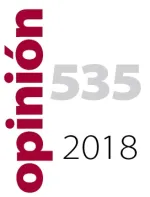Will EU Dare have a Real Foreign Policy?

Just over a month ago, French President Emmanuel Macron pushed the limits of international diplomacy when his last-ditch appeal to salvage the Iran nuclear deal, wrong-footed his European allies and was met with intransigence by US President Donald Trump. “The purpose of all wars is peace” observed St Augustine, one of the fathers of the Christian Church in the first millennium. But, as Andrew Bacevich, author of America’s War for the Greater Middle East: A Military History, makes clear, “wars without end and a (US) military system incapable of ending anything it begins are facts in our present lives”. St Augustine’s aphorism “just might require a bit of updating” he adds which explains no doubt why if “prior to Trump, the EU’s influence on US policy was minimal; today it is non-existent”. Mr Macron’s attempt to cultivate a personal bond with Trump showed him to have badly misjudged the US president. Preserving the existing nuclear accord could serve as the cornerstone of a new, expanded deal that would address the Islamic Republic’s ballistic missile program and destabilizing behaviour across the Middle East ran headlong into Trump’s competing instinct on foreign policy.
Mr Macron’s pitch caught fellow European powers off guard. A lack of European coordination might have been a price worth paying if the US president had been persuaded to stick to the Iran accord but, failing that, Mr Macron Jupiterian stance on foreign policy was shown up for what it is – essentially a form of French hubris. His attempt was doomed before he even arrived in Washington because, as Jon Alterman, a senior vice president at the Center for Strategic and International Studies, said of Mr Trump’s opposition, “the challenge with all of this is the president’s objection to the deal is visceral, not intellectual”.
Europe faces two challenges: first, can it forge a common foreign policy on Iran and the broader Middle East if France, Britain and Germany to a lesser extent continue to defend what they see as their own national interests, thus disregarding the feelings of smaller EU players? Second, whether Europe has the wit and the courage to recognise that its interests differ from those of the US and act accordingly. This is a dilemma which its elites have been slow to face up to despite the huge fracture which opened up during the US led invasion of Iraq in 2003.
As a prescient Herfried Münkler noted in Empires (2007) Europe’s “imperial challenge” is made up of two distinct and dissimilar parts. “On the one hand, Europeans must keep up a two-way relationship with the more powerful United States; they must take care that they do not simply provide resources for its operations and step in afterwards to handle the consequences, without having any say in the fundamental politico-military decisions. Their task in this respect is to resist political marginalization.” Europe’s minor role on the Palestinian issue but its key role in bankrolling the Palestinian Authority has long illustrated this point. Mr Trump’s decision to move the US embassy in Israel to Jerusalem simply rubs salt into the European wound.
Forcing Europe to confront Iran, in alliance with a gung-ho Israel and Saudi Arabia, which has bankrolled the rise of Salafi Islam which is destabilising many Muslim countries across the world - not least in Northwest Africa, to the tune of $200bn since 1979, risks marginalizing Europe even more in world affairs and denying its companies contracts in Iran. However such a confrontation plays out, it can only add to the flood of displaced people in a region blooded beyond recognition since 2011 and add to Sunni-Shi’a and inter Sunni tensions as it fuels radicalization of young Muslims inside and outside Europe. Last but not least, it hands Russian leader, Vladimir Putin, further tactical weapons against Europe in Ukraine and the Middle East. Meanwhile, the EU decision to give the go-ahead to the Nord-Stream 2 gas pipeline last month does nothing to decrease European dependence on Russian gas.
“Hence the paradoxical danger is that (Europe) could suffer imperial overstretch without actually being an Empire.” But is that not a good description of what has been happening in recent years in the Sahel belt of Africa, Libya and Ukraine? The US move on Iran casts a harsh light on Europe’s vulnerability to Trump’s America First approach. The US can use three types of tools on European business interests in Iran – fines, a ban on doing business in the US and blocking access to the US financial system and the dollar payment zone it mediates for companies involved in Iran and their bankers.
Martin Sandbu recently outlined in the Financial Times what bypassing the US financial system would entail and how it could be done. If Europe creates sanctions bypass tools, “they would have three significant effects. One is that Europe would have a particular type of leverage over Iran much in the way the US has leverage over Europe; by providing financial connectivity with the rest of the world. The second is that it would demonstratively defy US policy; it would be (for Europe) an uncharacteristically escalating move. The third and biggest consequence would be the creation of an embryonic alternative global payment and settlement system to the dollar-based one.” Europe has never shown such wit, assertiveness, dare one say courage. France, in particular, would have to reign in its hubristic instincts in foreign policy but Mr Trump has abused America’s “exorbitant privilege” of supplying the world’s reserve currency. Whether his actions end up by undermining one of the greatest sources of US power will be decided by many actors, not least, in the long run China. Europe claims it has a foreign policy worthy of its economic weight. Now is the time to seize the opportunity offered by Mr Trump’s provocations and puts his words where his mouth is.
Keywords: Macron, EU Foreign Policy, Trump, Iran
E-ISSN: 2013-4428
D.L.: B-8439-2012